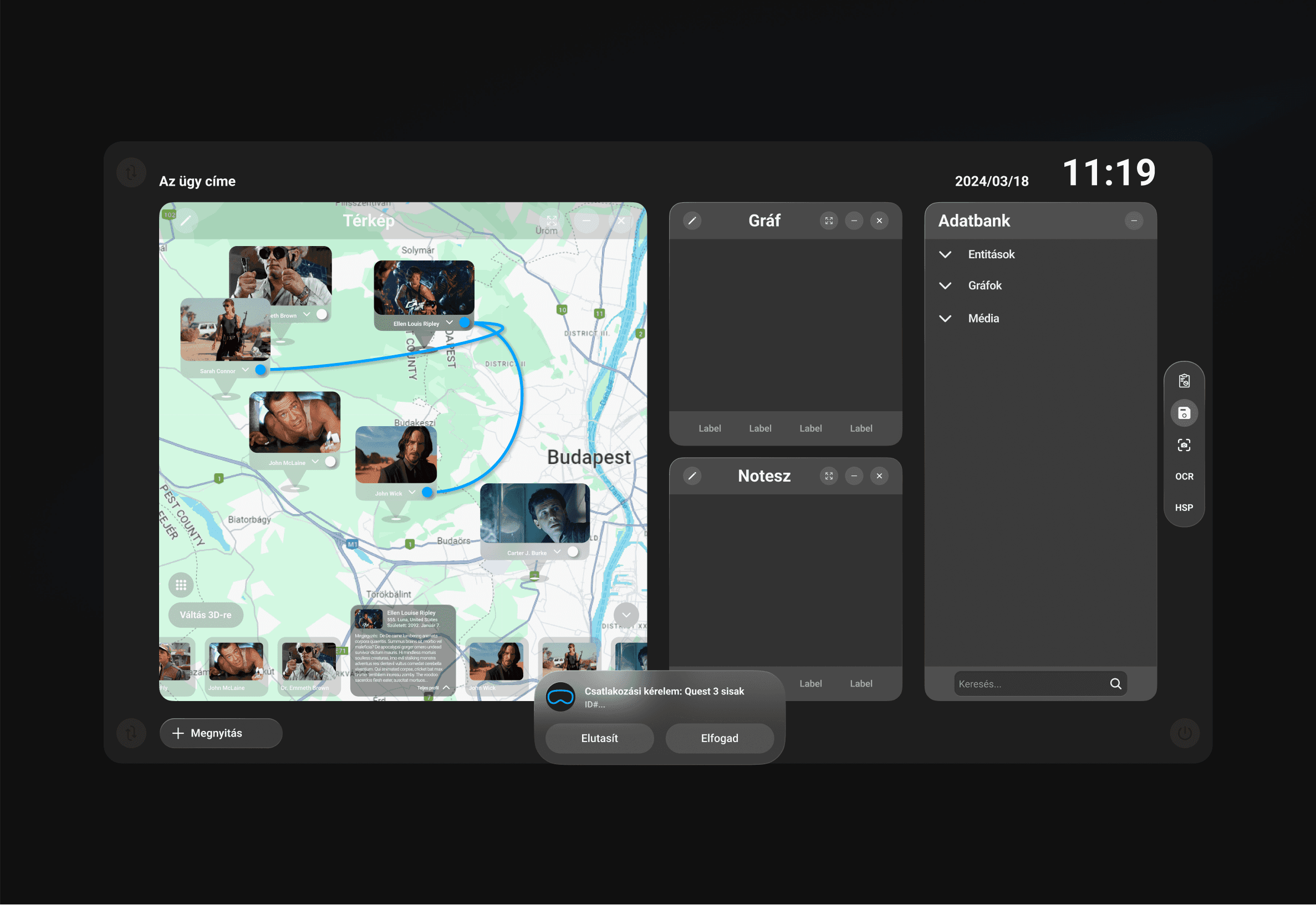VR Graph
XR Interface – Unified Touch and VR Experience
Category:
SaaS, B2C, VR
Tools:
Figma, Vercel, UXpilot, Cursor
Where Touch Meets Immersion: Designing the Future of XR Interfaces
As Lead Product Designer, I designed a mixed reality (XR) interface that unified interactions across a large-format touchscreen and Meta Quest 3 VR headset. The system centered around a custom-built 150 cm smart display (using Displax touch foil) integrated into a purpose-built table, transforming it into a collaborative mixed-reality workspace. The core challenge was ensuring a consistent user experience across both platforms, maintaining identical UI behavior and visual parity in touch and VR environments. I established the design framework, including touch-zone mapping, button sizing, and interaction ratios to ensure comfort and usability on the oversized screen.
After defining the touch experience, I adapted the design for VR, ensuring a seamless transition between modalities. Despite limited testing access, I conducted focused usability sessions to validate interaction zones and adjust visual depth and affordances. Collaborating with industrial designers, I also helped shape the physical product, creating a futuristic, ergonomic table that aligned with the system’s visual language.
The outcome was a fully functional, cross-platform XR interface with: Unified UI design works identically on both touchscreen and VR. Optimized touch-zone architecture for large-scale displays. A modular, scalable design system supporting future XR integrations. This project expanded the definition of product design by blending physical and digital systems into a cohesive mixed-reality experience.






